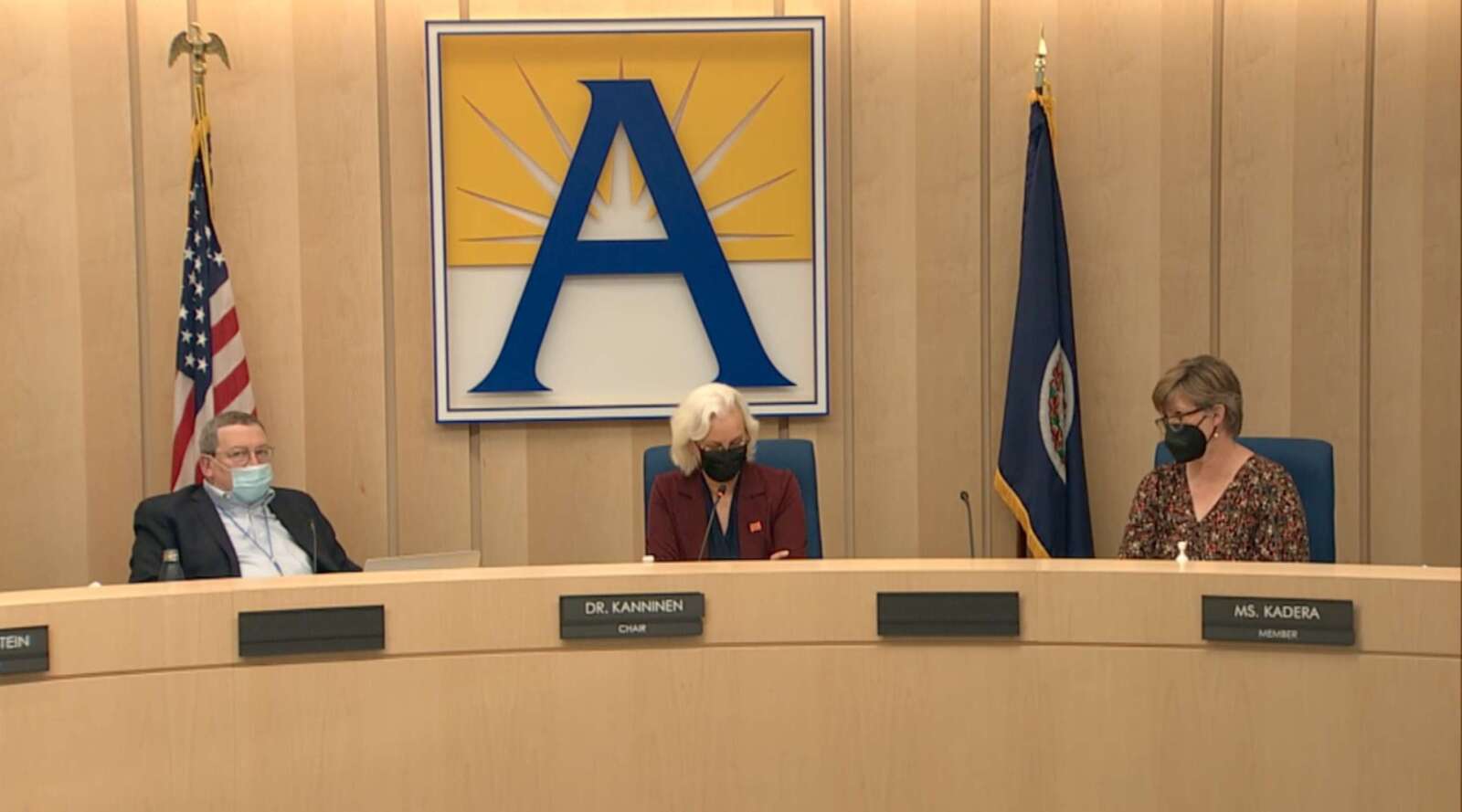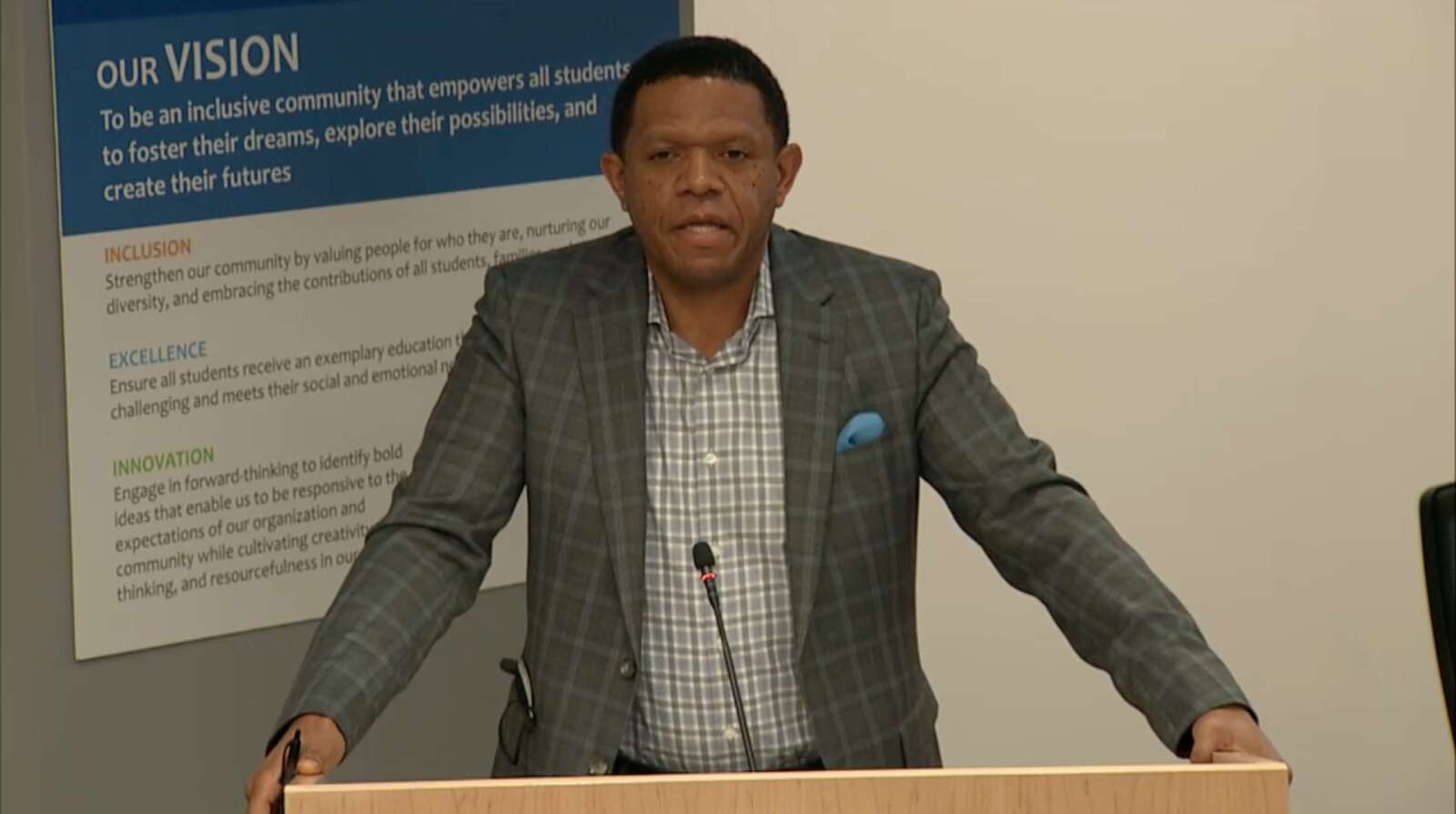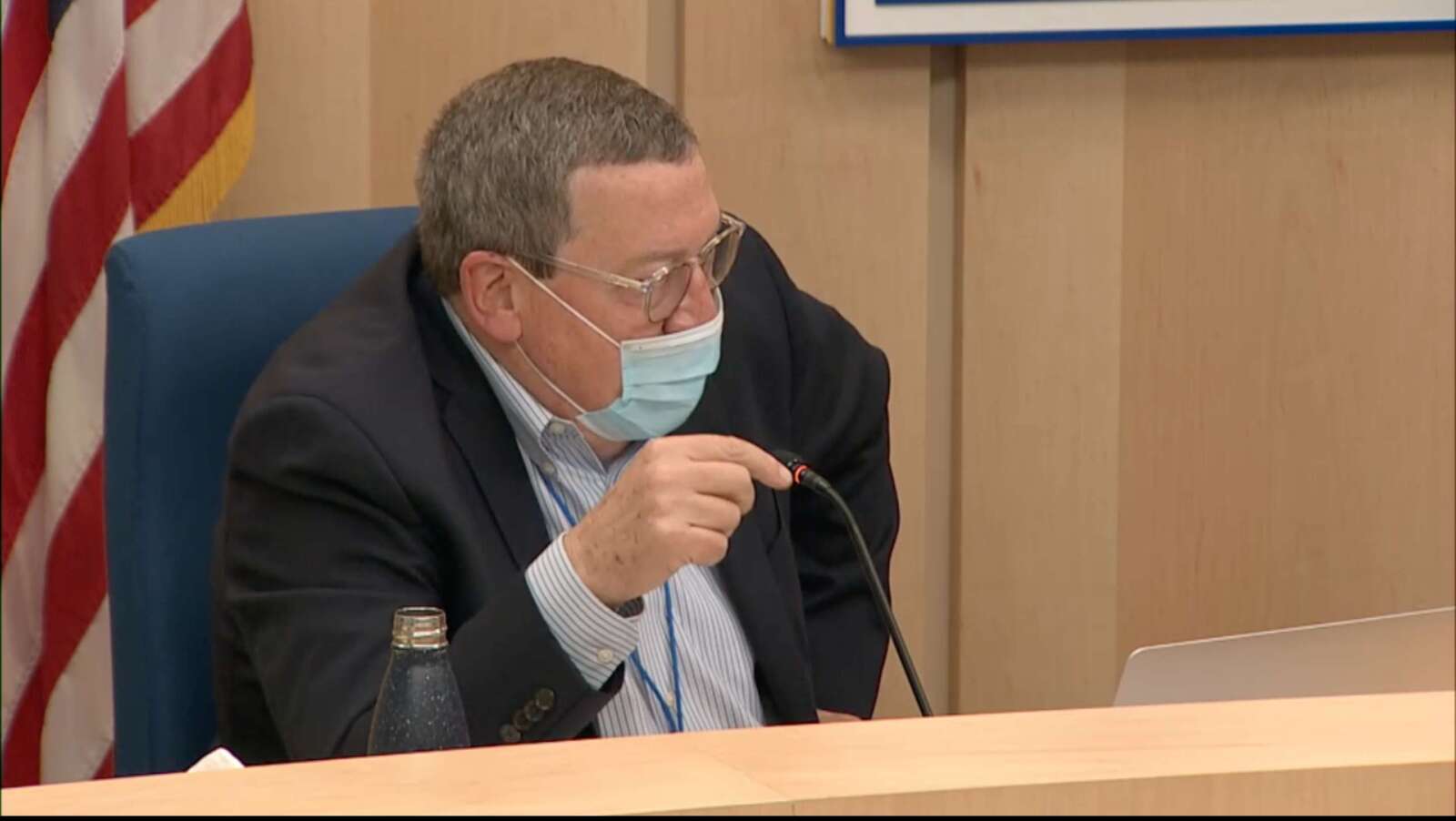The Arlington School Board has unanimously passed a resolution allowing teachers and staff to collectively bargain, becoming among the first school districts in Virginia to do so.
Arlington is following on the heels of Richmond in letting employees at public schools unionize, after the General Assembly in 2020 repealed a ban on school employees bargaining collectively.
“I believe we are the second school division to do this,” said Arlington Public Schools spokesperson Frank Bellavia. Richmond was the first school district in the state to grant employees such a right in December last year.
“This particular resolution is not the final conversation, this is not the collective bargaining agreement, this is just setting the rules of the game,” said School Board member Cristina Diaz-Torres during the board meeting Thursday.
The School Board made a few updates to its original draft resolution, published in April, after discussions with the Arlington Education Association and Virginia Education Association, two local unions representing public school employees.
The main changes concerned the way the union would be elected and the functions of the designated neutral third party. Under the adopted resolution, a union needs to obtain signatures from 30% of public school employees to trigger an election, a significant decrease from the 50% needed in the draft resolution.
Moreover, the costs of elections would be split between the School Board and the union under the finalized agreement. The original proposal would have given the union sole responsibility of cost.
Under the final resolution, the elected union will become the exclusive representative to negotiate directly with the School Board for wages and benefits. The union will be representing all public school employees whether they are in the union or not.
“I am particularly glad to see that some of the more significant concessions that were requested by AEA and VEA have been implemented,” said School Board member Mary Kadera, “and I appreciate VEA and AEA flagging that issue and advocating for that.”
She added that she would be committed to “leaning in and listening and working in good faith” with the employee associations in the future.
Not all suggestions from the employee associations were adopted. AEA pointed out several issues it had with the final resolution, chief among them being the School Board’s power to automatically decertify the union if members of the latter were to join any union strikes, according to AEA’s president-elect June Prakash. She further stated that those issues “must be resolved before sitting down at a bargaining table.”
AEA’s UniServ Director Sean Genson, who acts as a liaison with state and national associations, said the power to decertify “should be held with a neutral third party.” He added that this resolution was like “writing the rules to a new game” and should be “difficult to change over time.”
“APS’s resolution does that very well, but not perfectly,” he said.
In the same School Board meeting, the board also appointed Stephanie Maltz as the new director of labor relations. She will be responsible for establishing the guidelines to elect an exclusive representative and handling complaints from public school employees.
Maltz has been an attorney adviser at the D.C. Government Office of Labor Relations and Collective Bargaining and had managed similar job duties at D.C. Public Schools for the past five years, according to an APS news release announcing her appointment.
Before this resolution, the Arlington Education Association could not enter into binding contracts with the School Board. The association could only “meet and confer” with the board on issues regarding wage and benefits.
Under the new resolution, the elected union will be able to put their demands into a legally binding contract with the School Board, according to an infographic from the group.
AEA has faced a few controversies recently. Its national affiliate, the National Education Association, had to step in and lead the organization in April after its executive board was ousted. The local organization also faced financial difficulties and a significant loss of members between 2020 and 2021
To address those problems, Genson said AEA had elected new executive officers who were “focused on collective bargaining and focused on members being involved in the association.” Moreover, Genson said the new leadership has carried out various school visits to meet with public school employees.
“What they’ve done in stepping up is organize a whole new level of communications with members and with potential members,” he said, “to get out there in person as much as possible to meet with people and to be available for suggestions and questions.”
Following the resolution’s passage, School Board Chair Barbara Kanninen said in a statement that the school system looks forward to the “important work” of negotiating directly with employees.
“This is a historic moment for Arlington Public Schools,” Kanninen said. “We are proud to pass a resolution that gives our teachers and staff a seat at the table when it comes to directly negotiating their pay, benefits and other issues most important to them… This agreement is the outcome of a careful, deliberate process to support and retain our valued employees.”




